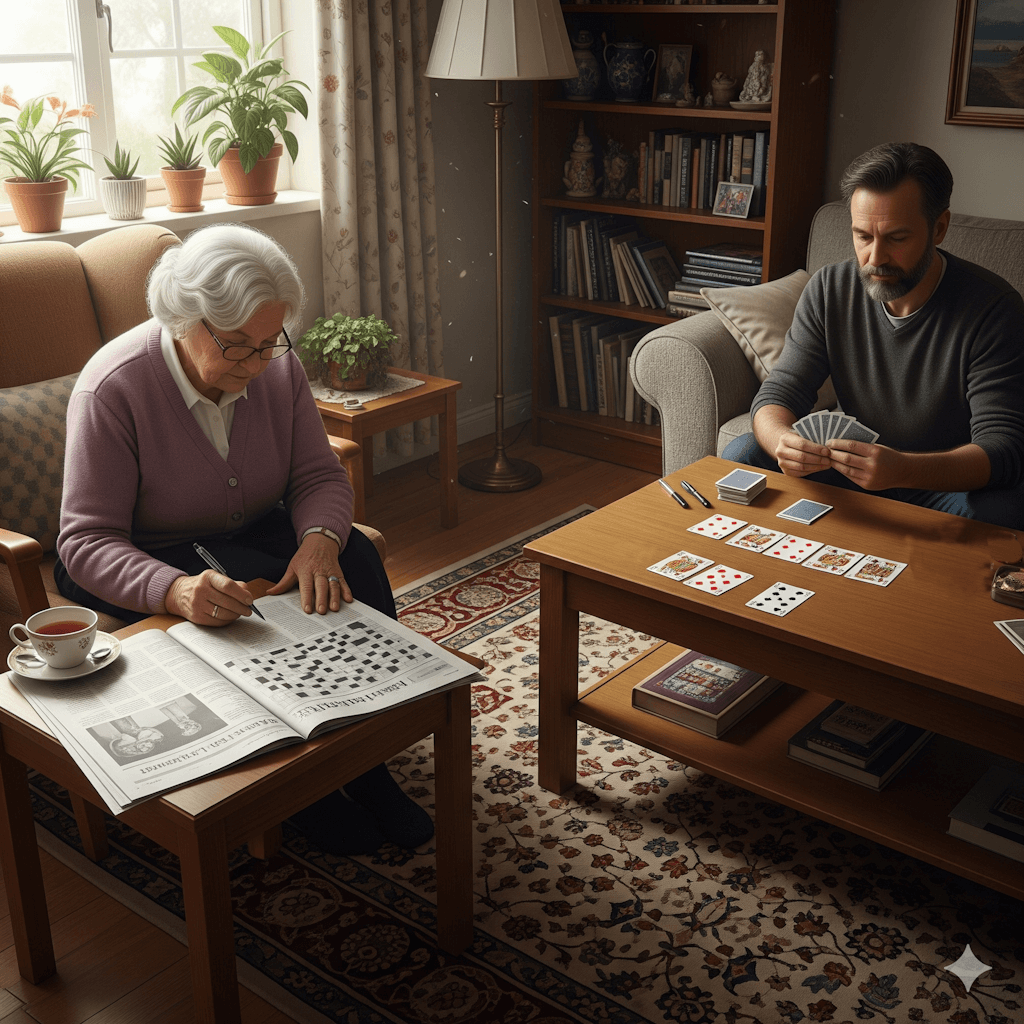Learning Through Play: What Crosswords and Card Games Teach Us

Play is not what we leave behind after we grow up. Games are not only entertainment and leisure, but they are also much more for our brains. They can help us develop focus, memory, strategy, and even problem-solving skills. As adults, in games we can learn things which we can later carry into daily life, and still have fun while playing.
In this post, we look into how normal games can stimulate learning and sharpen the mind.
Crosswords: Vocabulary and Problem-Solving
Crosswords seem trivial, but they have been around for centuries and for a good reason. They are more than just a pastime during a coffee break. In fact, crosswords engage the brain in a very different way than card games because solving these types of puzzles improves vocabulary and lateral thinking.
Every clue in a crossword puzzle is to be decoded and solved like a mini problem. Some clues are quite straightforward, others can be tricky. Working on these helps develop reasoning skills and methodical thinking.
Solving crosswords daily creates a sense of routine, while 15 minutes of solving a puzzle exercises the mind and gives a sense of achievement. Over time, this habit (which is also entertaining) improvised focus and mental agility.
Card Games: Strategy and Memory
Card games are as old as crosswords, if not older, and they are still popular even with all the possible games and entertainment options around. People keep playing card games offline and also online, for example, at the best online casino Canada real money platforms.
Games like bridge, poker, and rummy are not only enjoyable but also excellent for the brain, and these are classic gambling games. However, playing cards is somehow so attractive to our brains that many modern tabletop games also involve cards.
Playing cards requires memory, attention to detail, and strategic thinking. In many classic games, you have to remember which cards have already been played, anticipate opponents' moves, and evaluate your risks. Trying to calculate probabilities and predict one's actions are definitely important skills in life.
Card games also develop patience and decision-making under pressure, especially when friends are making jokes and distracting you. Learning to think a few steps ahead in this environment is an excellent mental exercise that strengthens cognitive skills, and these can be applied in life outside the game.
Social Skills Through Games
Despite the fact that socially and emotionally, games can be quite wild and people often have quarrels over games, games are also amazing social tools. They can be used for breaking the ice, team building, and generally spending entertaining and meaningful time together.
Playing with others fosters communication, collaboration, and empathy in terms of understanding what the other person feels or thinks. This is especially true in card games and tabletop games. You need to read opponents, notice subtle cues, and manage their reactions – as well as your own.
Games also stimulate creative thinking and the skill of argumentation in discussions. Even competitive casino games and gambling can help practice emotional control and strategy.
For calmer environments like family gaming evenings, games create shared experiences, moments of bonding, and teach soft skills. This is a great environment for learning through interaction and not through study or repetition.
Cognitive Benefits of Play
It might sound weird, but the mental benefits of games are well-documented (mostly for the tasks of child development and education, but the progress in this field actually sparked research for adult players). While playing, memory, attention, problem-solving, reasoning, and creative thinking are exercised naturally.
Learning and practicing these skills outside of the gaming environment will make the brain perceive it as a chore, but during the game, it is not structured, it is spontaneous, and the brain engages willingly.
Repetition and patterns in games create new connections in the brain and reinforce neural pathways. The brain learned to recognize patterns, collect and connect facts, and calculate the outcomes way more efficiently – all while having fun. Even short sessions of playing can make a noticeable difference.
Practical Applications Beyond Games
The best thing about playing games is that the lessons learned extend beyond playtime, and the brain uses its new skills in real-life situations whenever the conditions trigger the necessary reaction. Focus and memory are always useful for work and school, while language skills and logical thinking help with writing, discussions, problem-solving, and working with tasks that include many details.
Some games develop risk awareness, patience, and emotional control, which are absolutely priceless skills for decision-making, managing finances, or generally reacting in any stressful situation.
Socially, games teach valuable soft skills like communication and negotiation. Being able to manage your own mistakes and face the consequences without collapsing is also a great skill many people genuinely lack. Games teach resilience, patience, stress management, creativity in communication, and self-control.
The good news is that you don't have to be a pro in any game to develop all these skills, which means no huge time investment is necessary. Only 20 minutes per day or a few hours per week of mindful play will give positive results.
839GYLCCC1992



Leave a Reply